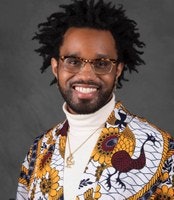
Anti-LGBTQ+ Laws and Higher Ed


The LGBT Center at the University of Louisville in Kentucky makes its goals clear. “The center is committed to dismantling cis-heteropatriarchy and other systems of oppression,” reads the front page of its website. “Empower the LGBTQ+ campus community to reach their full potential; not only survive but THRIVE,” it continues. But this year, that’s been more challenging than ever.
The Kentucky state legislature has considered 11 anti-LGBTQ+ bills in this legislative session alone, according to the American Civil Liberties Union (ACLU). And although most have been defeated, some have passed, including Senate Bill 150, which bans puberty blockers, hormone treatments, and surgeries for children under 18.
Kentucky is hardly alone. A wave of anti-LGBTQ+ bills has flooded statehouses this year, part of a backlash to transgender progress and the renewal of the culture war. As of April 3, 417 anti-LGBTQ+ laws had been proposed this year, according to the ACLU, with 283 of them relating to education. Twenty-four have passed, in 11 states.
Although most of the education bills affect the K-12 level (regulating what students can be taught about gender and sexuality, what pronouns students can be called, and what bathrooms they can use), some measures affect higher education, including Senate Bill 150 in Kentucky. The University of Louisville enrolls students each year who are under 18, some of them trans. The LGBT Center had been able to refer trans students seeking help to gender-affirming care. Now, it will not be.
“There’s nothing really that can be done because practitioners that we would refer to can’t see them,” says Byron Terry, assistant director for the LGBT Center on Louisville’s Belknap Campus. “The most we can do is provide them with the resources that we have [at] the center, which are student support resources, events, and community building.”
Finding resources
Dr. Jeff Maliskey, director of the Pride Center at the University of North Dakota, is in a similar situation. The North Dakota state legislature has proposed 17 anti-LGBTQ+ laws this year, according to the ACLU, and this April, Gov. Doug Burgum signed a bill banning gender-affirming care for people under the age of 18.
“We just have to have those conversations and let them know that, unfortunately, this is something that we can’t offer, or we don’t offer,” says Maliskey. “What I tell them is that we’ll try to get you connected to the resources that are available. Maybe that means going next door to Minnesota, right on the border.”
 Jeff Maliskey
Jeff Maliskey
“I think the students are watching the pieces of legislation and they’re seeing what happens because they may or may not decide to continue their education here,” he says. “We’ve seen students drop out completely and look at other options this past semester.”
Although only a few students have left the university, more are considering exiting the state as soon as they graduate.
“Most of the conversations I’ve heard are like ‘Well, I’m here. I’m going to finish out, but then I’m going to leave North Dakota as soon as I can,’” says Maliskey, citing affordability for in-state students and scholarships as reasons for staying.
“A lot of them do want to stick it out and finish their education,” he says. “But they know the moment they’re done, they’ll be ready to leave.”
‘Just wanting to connect’
At Louisville, Terry has noticed that more students have been reaching out for help.
“There has definitely been an increase of students who are coming to the center for services,” says Terry. “Just wanting to connect, wanting to be seen, wanting to be heard. It creates a burden on the university — how can we support these students?”
Terry emphasizes that it’s not just about the few laws that pass. Even the proposals that don’t go anywhere take a toll.
“It’s the experience of being at risk,” he explains. “Once the bill is proposed, or even hinted about, people are automatically feeling that. They’re anxious, they’re nervous, they’re wondering what’s going to happen next.”
The LGBT Center at Louisville has been fielding additional requests from others who want help dealing with the laws.
“A lot of parents and faculty have reached out, just to have answers of what’s going on, how do we support our children?” says Terry. “We do the best that we can to provide support to them, provide educational tools to them: this is what this bill means and what things [young people] may run into.”
The wave of homophobic and transphobic legislation is also having an impact in states that have been free of anti-LGBTQ+ bills.
“We’ve heard from a number of students, faculty, and staff that they have concerns about what’s going on at the state level,” says Chris Woods, senior director of inclusive policy and director of the LGBTQ+ Center at New York University (NYU). “It’s weighing on them.”
Far-reaching impact
Although New York State has not introduced any anti-LGBTQ+ bills this year, NYU has many students who hail from states that have. Woods says that the LGBTQ+ Center helps students make plans for their healthcare and for their safety when they return to their hometowns.
“Let’s say they’re getting hormones,” says Woods. “They might be able to fill prescriptions here [in New York] before they go to have access to care that they might need while they’re there.”
 Byron Terry
Byron Terry
“There’s only so many of us,” says Terry. “That does create a strain. I’ll stay later for work, I’ll go to different meetings, I’ll speak in different spaces just to support people.”
The bills aren’t only difficult for him professionally — they affect him personally as well.
“I hate seeing this happen,” he says. “I experience a lot of those feelings that everyone else does.”
But Terry credits other offices on campus with supporting the LGBT Center.
“Our campus partners have leaned in a lot more,” he says. “Just showing up to events, teaming up with us, being a listening ear for students when we can’t be there. Really offering that space to support.”
Maliskey says that UND’s leadership has been a big help.
“Surprisingly, we’ve been pretty good. Our administration’s been really supportive,” he says. “I think there’s an institutional commitment to serving queer and trans students.”
Although supportive campus partners and administrations certainly make a difference, they can’t erase the difficulties that anti-LGBTQ+ bills are creating for campus LGBTQ+ centers. Younger students who want to transition or who already were suddenly can’t, and how staff can help students is fundamentally limited.
“It’s definitely a hard place that it puts us in,” Terry says. “We want to provide the best care for our students. Our mission is to make sure that people feel empowered to be whoever they are. Everybody else gets to have the care that they need, right? The fact that a certain population isn’t able to receive those services is really heartbreaking.”